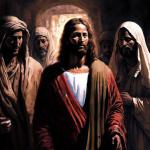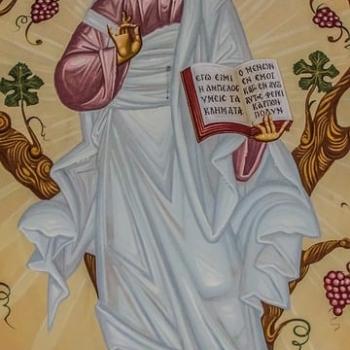
It is estimated that the word fear appears over five hundred times in the Bible. While many of the uses of the word are intended as encouragement against being afraid, the Bible also has much to say about fear in relation to God and the transcendent.
In this paper, I will examine the relationship between fear and God. I will begin by discussing the two primary uses of the word fear in a biblical context and conclude by suggesting that fear speaks to the relation between God and His creation.
The word fear can have several connotations; two are significant within the context of the Bible. The first way to understand fear is the most common, a strong, unpleasant emotion that one feels in anticipation of danger or evil. While it may seem strange to associate this type of fear with God, that element is apparent in Scripture. As evidence of this, the Hebrew word often used when describing encounters with God or with angels is pa-had, meaning “dread or panic.” It is, therefore, not surprising that angels often preface their conversations with humans with some version of “Do not be afraid.” But afraid all who encountered God were. Abram (Abraham) fell prostate when first encountering the Divine (Genesis 17:3). We are told that Moses was so afraid to look at God that he hid his face (Exodus 3:6), and Joshua is said to have fallen to the ground in worship when faced with an angel of the Lord (Joshua 5:13-14).
If God is love and the source of goodness, how do we explain these reactions? It should be observed that the fear of God is not primarily a fear of something but of someone. Said differently, such fear of God is predicated upon God’s complete strangeness and otherness. God is not a part of any genus; indeed, He exists outside of creation itself. God alludes to this chasm between Creator and creation when He tells Isaiah, “For my thoughts are not your thoughts, nor are your ways my way. For as the heavens are higher than the earth, so are my ways higher than your ways, my thoughts higher than your thoughts.” (Isaiah 55:8-9). All of this feeds into the very natural tendency to fear the unknown.
Nor has the strangeness of God been lost on theologians and philosophers who have coined the term “wholly other” to refer to God. The Swiss theologian Karl Barth thought God beyond our comprehension, hidden from us, alien to our sensibilities, yet knowable in Christ, and the writer Graham Greene notes the strangeness of God’s mercy.
While the transcendent otherness lends itself to the traditional use and understanding of fear, it is not the only way fear is used in Scripture. The Hebrew word yirah is also used and is frequently translated as fear. However, yirah has a different connotation and is used to indicate awe, reverence, respect, and even worship. While considered archaic in English, this type of fear can be translated as awful and was used to connote that which is deserving of great respect and inspiring or majestic. The concept of God as eliciting a sense of awe is seen clearly in Psalm 66:3. “For he’s the awe-inspiring God, great and glorious in power!”. This view of God is certainly more in line with what one would expect when faced with the transcendent power of God.
Does fear of God, whether it be dread or reverence, serve a purpose? King Solomon certainly seems to suggest that it does. In Proverbs 9:10, he writes, “That the fear of the Lord is the beginning of wisdom.” I think there are several ways to understand the assertion that fear of God leads to wisdom.
First, to fear God, whether under the aspect of awe or dread, is to have at least some knowledge of God. Knowledge is a form of wisdom, and wisdom involves understanding causes. Therefore, since God is both the cause and the end (i.e., purpose) of creation, such fear can lead to wisdom.
The second way in which fear of God is illuminating is by making evident a hierarchical system within the universe. This is made clear by the fact that one does not fear that which is equal to or inferior to oneself. This hierarchical view plays a significant role in Catholic theology. Catholicism asserts that God created the universe in a hierarchical order over which He is the supreme authority. This is seen in what philosophy calls the “ladder of being,” a term derived from the work of Plato. A physical representation of the hierarchy of being can be found in the Tree of Porphyry.
Correspondingly, God established His one true Church in the person of Jesus Christ, over which He appointed Peter as Pope, which makes possible apostolic succession. In turn, Popes have an immediate and unmediated jurisdiction over every office in the Church. Significantly, the Pope speaks with the authority of Christ on matters of doctrine and morality.
Furthermore, fear of God properly orders human beings vis-a-vis God and clarifies that God, and not human beings, is the creator of human nature. Since that which is the cause of a thing is greater than the thing caused, it follows, therefore, that human beings are not the “measure of all things,” as Protagoras claimed.
Finally, since fear of God correctly orders God and His creation, it allows for a framework by which objective morality can be understood. For it must be that fear of God includes fear of God’s judgment. Human beings can no more arrogate morality than they can create themselves.
In a time that stresses individualism and egoism, fear of God is an alien concept. Yet, if human beings are to fulfill their nature, they must properly order themselves to God. That is precisely what fear of God does.













